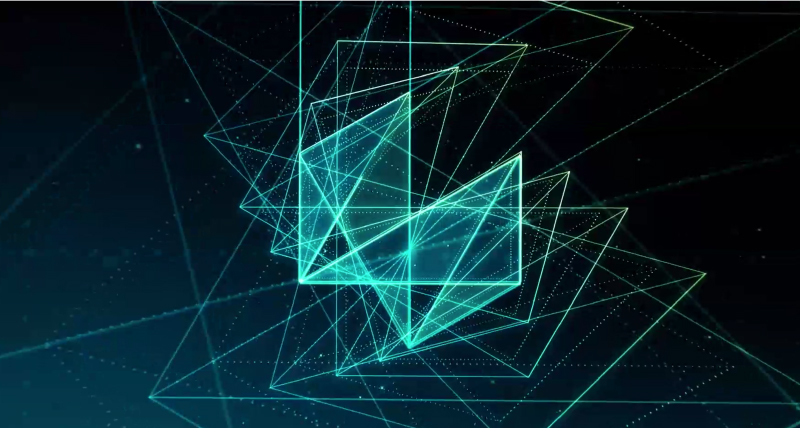In this episode of HxGN Radio, we dive deep into discussions about Hexagon’s new open innovation platform, Sixth Sense. This platform was launched in January of 2022 to create a new space for innovative startups to work with Hexagon’s Manufacturing Intelligence division. We’ve received over 120 applications, but we narrowed it down to seven companies, spent 10 weeks working with these companies to determine where the innovation could take them and how to scale their business. Milan Kocic, Head of Sixth Sense, discusses the platform, explains why such initiatives are important for Hexagon’s Manufacturing Intelligence division and what they are hoping to achieve long-term.
He is joined by Cody Burke, COO of SmartParts, who were selected by Sixth Sense as one of the winning startups from a pool of 7 competitors, following an 8-week program to hone their business models and approaches, and concluding with a final presentation to a panel of judges to pitch for the resources to globalize and gain access to Hexagon’s customer base.
BK: Welcome to HxGN Radio. My name is Brian. And in today’s episode, we are discussing HxGN’s new open innovation platform Sixth Sense. This platform was launched in January of 2022 to create a new space for innovative startups to work with HxGN MI. We’ve received over 120 applications, but we narrowed it down to seven companies, spent 10 weeks working with these companies to determine where the innovation could take them and how to scale their business. In today’s episode, we’re going to discuss why such initiatives are so important for HxGN MI, and what we are hoping to achieve long term. Joining me today are Milan Kocic, senior director of Sixth Sense, and Cody Burke, COO of SmartParts. Gentlemen, thank you. Appreciate you joining me today.
MK: Thank you for having us.
CB: Hey. Thanks.
BK: Of course. All right, so I got to know a little bit about you guys. So, Milan, why don’t you go first? Tell us about yourself, what you do and what you’re nerding out on, too?
MK: Sure. Obviously, as you said it, I’m head of Sixth Sense, open innovation platform.
BK: It’s what you do all day long. Right?
MK: I have to do that all day long. I’ve been a HxGN lifer. I’ve been around for 25 years. Done many, many different things and I’ve spent the last year or so building the open innovation platform. What am I nerding out? I don’t know. I got a PS5 about a month ago and-
BK: There you go.
MK: Finally, after a year and a half of trying to get it. So now I’m nerding out on wasting my time playing video games in the evenings and ignoring my daughter. So, seems to work perfectly.
BK: She doesn’t play with you?
MK: No. She likes very simple games. So, she has a Switch.
BK: Okay.
MK: I push her off on the Switch so I don’t get bothered and then I just do the PS5. It’s perfectly good.
BK: Okay. How old is she?
MK: She’s 10.
BK: Okay. I was going to say, my 11-year-old cousin and I are playing some pretty intense PC games right now, so you never know. Sometimes they do and sometimes …
MK: Anything could happen. I can still hope.
BK: That’s right.
MK: She did Lego for a while and then she went away. So, all the nerding out through my daughter is not paying off, necessarily, as I planned.
BK: First person shooters are coming soon though.
MK: I know.
BK: Yeah.
MK: We’ll see.
BK: It’s coming. All right. Cody?
CB: Yeah. So, thanks for having us. So, my name’s Cody Burke, I’m the COO of SmartParts. And we’re building an embedded traceability platform for manufacturing that links physical assets to digital records. So that’s, honestly, as a startup, that’s my entire nerding out budget, is spent on the startup, frankly. But I’m a tech guy, so I love the space. I come from about 12 years in the 3D printing space. So, anything related to digital manufacturing, advanced manufacturing, just technology in general.
BK: Love it. That’s great. No, I understand, doing the whole startup thing, that’s pretty much your entire time. You probably, what? Sleep two hours a day, something like that.
CB: Yeah. That’d be nice.
BK: Yeah. That’s on a good day. All right. So, I want to know how you two connected then? Let’s start there.
MK: Early January or something, we announced the existence of Sixth Senses and then we announced the challenge, which was right abroad. We were looking for basically all kinds of companies in the advanced manufacturing space. And we put out the feelers and people applied. More than 120 companies applied. We expected roughly 50, but we got oversubscribed on what it did and then we picked a few companies. SmartParts, themselves, was strangely enough, even though they applied, they came to a totally different channel, which is a design company in Providence, Rhode Island, where I live called Okta, was working with smart parts. And they were like, oh, there’s a really cool company. You should cheque out of New York and then introduced me to coding. And we kind of started a conversation and we got very intrigued with their technology. And then we picked them. Then we put them through the wringer for 10 weeks. And then the final event was in London, where everybody presented, and themselves and another company called Rico were picked as the winners of the first ever cohort that we ran from March till end of May.
BK: Okay. Nice. Excellent. So why did you start Sixth Sense in the first place? Talk about that launch process. What was the problem that you solved?
MK: Well, the problem is any mature organisation, like Hexagon, tends to struggle with trying to be disruptive and innovating in things. And it’s not because there’s no will, it more has to do with the fact that the priorities are business units, making money. Our job is to shareholders and it’s our responsibility and you have to produce every quarter and everything else. It’s hard to take bets, at the same time you’re trying to run a day-to-day business. So, what we propose, which is, it’s not unique to us; other organisations do this. Where it’s unique to us rather than running an accelerator like structure, which is “come in, we give you some classes and here’s a cheque because we like you.” We are more concerned about trying to get customer penetration, look at a technology fit with the organisations. And we’re a relatively bespoke and small programme because we’re looking for larger outcomes from it. The bigger picture of the whole thing is to inject innovation, but primarily is to give a safe space for startups in HxGN to have a discussion that happens in a limited amount of time. Because sometimes these discussions take years and I have an anecdote for that, which is we tend to buy them lunches. Then we buy them more expensive lunches and then we get them really expensive dinners. And then we eventually acquired it for much more money then, rather than having a relationship that lasts and is joined together.
BK: Yeah. That’s a really good point. So why do you think external innovation is important for HxGN?
MK: People like Cody and similar companies, I think, as we started the conversation, he lives, breathes and does everything for the success of SmartParts. It’s his priority. He has a greater focus. His team has a focus on technologies that are going to potentially change the world. We have 8 million other things to worry about at the same time. So, when you work with a startup, you have a very focused, very nimble, very agile organisation that does two things. One, works on their own ideas. Secondarily, potentially injects that kind of aura of excitement back into Hexagon. So that people at Hexagon see what’s possible. So, the idea is, okay, I have my day-to-day thing that happens. “Oh, look at these guys, they have some really cool stuff that is really intriguing.” And that’s been the response, especially with SmartParts. We’ve had this response from an internal organisation that was very intrigued, that wants to work with them and they have… Suddenly, it generated other ideas. It wasn’t just what we did and what SmartParts does. It’s “what can we build for the future” is what essentially we were working on.
BK: I like that. So, you’re saying that, people like Cody are reigniting that passion and that curiosity that may have been a little lost in the routine of the day-to-day?
MK: To a certain extent.
BK: Sure, sure, sure.
MK: There’s other, of course, other corporate problems, but in general, I think the way we ran it, we’re slightly unusual in the sense that we’re a little bit off the beaten path. So, we get a little bit more leverage on social media. We get a little more leverage to feature people. We are trying to do new things within Hexagon domain that could be perceived as more alternative and more progressive in a certain way, which I think allows that voice to be heard within the organisation. And I can tell you, from our response that we have received, people love it. We had enough people to watch the events and people giving us feedback. Cody and SmartParts have been pulled by the press, Reuters, and a bunch of other places that want to interview them. So, it’s generating that momentum, in essence to create the excitement in the organisation.
BK: Sure. No, that’s great. Love it. So how does Sixth Sense work? Talk about the process.
MK: Okay. Here’s the 10 second version of how it works. Two, three times a year, we will issue some sort of a challenge. Our initial challenges are a little more broad because it’s hard to get niche-y in our industry. We say, like the first challenge was, “do you do anything in advanced manufacturing space? We would like to hear from you.” Then we get a bunch of applications. We sit there as a committee and we pick interesting companies. The first cohort, we picked 13. On March 16, this year, all 13 companies virtually pitched to a jury and a bunch of people. There was also internal Hexagon employee voting. Then we picked seven of those companies. We put them into a programme, which has three phases. It’s called the proof of technology is phase one, which is we got to figure out what exactly is what they’re doing and how it works.
Then proof of business, which is how do you make money? How do you hope to make more money with Hexagon or outside of Hexagon? And then phase three is really honing their pitch, so when they come back for the big demo event, which was on May 25th, which was a live event, is they get to present their refined idea of how things work. Potentially, it also shows how it works with Hexagon technology and then some sort of a plan for the future. Cody and SmartParts had the best way, which is that startups essentially make their own prize. Tech stars and other outfits that tend to have a unit and then you usually get money for equity stake. We don’t do that. Primarily, investment is an option, but our primary focus is really getting a customer exposure for companies like SmartParts and getting them introduced into the ecosystem of what we do and what customers are asking for, and then try to help them scale their business.
BK: I love it.
MK: Yeah.
BK: So now you’ve touched on some of the benefits that Hexagon receives, but is there anything else that Hexagon is getting out of doing this?
MK: Well, we talked initially, one initial part is obviously the buzz and the culture and influence.
BK: Absolutely.
MK: Selfishly, if Hexagon invests in SmartParts and then at some point SmartParts is a billion dollar company, that’s also really good for everybody involved.
BK: Absolutely.
MK: But there’s a bigger picture here, which is, does the combination of technologies between the startups and Hexagon provide a larger added value? So, the idea being, if SmartParts does something on its own and Hexagon does something, does one plus one equal three? That’s ultimately what we aim for, which is that the sum of the parts gives us a greater penetration for particular technology or whatever we are going for. The other one is, it creates a perception that Hexagon is startup friendly. It’s not all the corporates are always startup friendly because it’s always a perception of, they want to come in and eat me for lunch and everything else. I would like to feel that over time we want to build something that’s slightly more democratised and open. Our success is if Cody’s successful at the end of the day, even if that means it’s not potentially with Hexagon, but the options are there for us to try to figure out the best way to merge the success of both organisations together.
BK: Love it. So now what about the startups? What do they get out of this? And now we’ve touched on this growth, exposure, new technology that impacts others. So, what are some of the other thoughts? And at some point, Cody, I want to hear what the impact’s been for you as well.
CB: Sure.
MK: I think beyond the stuff that you just mentioned, we give them access to any product within the Hexagon portfolio. So, if there’s a product within the Hexagon portfolio that a startup may think is useful to them to essentially deliver a final solution, they get access to the full breadth of the portfolio. We expose them to a coaches’ network. So, there’s a coaches’ network that is there to mentor them and help them out. We have a few partners. So, if there’s a technology like HubSpot from marketing CRM, and there’s a few other partners that we’ve had. So, the idea is to give them enough support to essentially be able to continue a journey onward to build. Like this radio show, they’ve also given quite a lot of support for PR and marketing. So, the idea is expose them to the wider world, because if it doesn’t work out with us, we would like to give them a springboard to work out with somebody else. So, in some ways it’s a strangest thing because it’s a corporation, but yes, we’re trying to be a little bit selfless in the bigger scheme of things because the success of a startup is ultimately our success at the end of the day.
BK: Yeah. Absolutely.
MK: That’s how it goes.
BK: That’s great. So, Cody, what’s been the impact for you?
CB: Yeah. The programme has been really helpful for us in a variety of ways. Going through the process has really forced us to refine our message, refine our business model, refine our product approach. And without that sort of external pressure to do it within the constraints of a programme, I still think we would’ve ended up in the same place, but it would’ve taken longer. And the other thing, as a sort of, by definition, a startup, it’s an idea or a technology in search of a business model. You’re looking for that product market fit. And so, the extent that you can have those conversations with people who have different perspectives, who are talking to different kinds of customers… that just helps, because then you can test ideas, you can get feedback.
And one of the things that, for us, our experience with the programme with Hexagon was that the coaches that Milan mentioned were just incredibly generous with their time. And that was both internal people at Hexagon, but then also external coaches that were brought in and we just leveraged that as much as we could because that’s just feedback. That’s really, really valuable for a startup at our phase to be able to get that honest feedback, refine the message, really zero in on what resonates. The other challenge of a startup is, how do you get a big company, big customers to pay attention to you?
BK: Yeah.
CB: The dilemma is, they know they want the innovation. They know they can’t do it themselves, but they don’t like to take risks, as a big company. So being able to talk to folks like Hexagon that are interacting with all of the top manufacturing OEMs globally, and having that conduit into that customer base, where we can ride the coattails a little bit of the Hexagon relationship and have those customer conversations is incredibly valuable for a company in our phase.
BK: Yeah. That’s so true. You’re right. You’re able to learn and fail quickly, probably more quickly than you could otherwise on your own like you’re talking about.
CB: Absolutely. Yeah.
BK: But then also, like you said, having that exposure and that connection that you wouldn’t have on your own. Well, you might eventually, but not quite like what you have now.
CB: Yeah. It’s called an accelerator for a reason. Right?
BK: Exactly.
CB: That’s the point, is that you get to move faster by leveraging more resources than you would have on your own.
BK: Yeah. I appreciate that. Well, this is an exciting programme. I love what you’re doing with this whole thing. What are your plans for the future, moving forward?
MK: Obviously find more exciting companies like SmartParts. But beyond that, we are making some plans to most likely expand the programme beyond just our division and to involve other places within Hexagon itself.
BK: Yeah.
MK: We would like to add an incubation arm, so help foster internal ideas and build a safe space where internal ideas can flourish. But in addition to… some of the internal ideas could get connected to startup ideas together and have a better chance of potentially succeeding. And then depending how much the good times roll, who knows where this all goes, but the biggest thing is to try to kind of transform our innovation process and how we work in order to inspire people within Hexagon to do greater things, whether it’s on their own or whether it’s together with startups.
BK: Yeah. I love it. Well, I’m glad that this is happening and moving forward. And Cody, congratulations to you and SmartParts as well.
CB: Great. Thank you.
BK: I’m glad this is going to happen. So where can we go for more information to learn and get other companies involved?
MK: The best place to go is Sixth Sense website, which is sixthsense.hexagon.com.
BK: Okay.
MK: On there, there is a nice detail. There’s a video. There’s a couple other videos that we’re going to be posting soon. There’s a link to the event videos themselves. So, people can see how the events look like. And there’s also an application on it. So, if a startup happens to listen to this and you want to join the Hexagon journey, just go and apply and let us know. We keep a database of all the companies that apply. And then as the challenges happen, we tend to reach out to some of them and we go from there. And the new challenge will be posted probably at the end of July this year.
BK: Okay. Perfect. All right. Well, Milan and Cody, thank you very much. Appreciate it.
CB: Yeah. Thanks for having us.
BK: Thanks for taking the time to join me.
CB: Thank you.
BK: All right. Well, Milan Kocic, senior director of Sixth Senses and Cody Burke, COO of SmartParts, thank you all for joining us today here on HxGN Radio. To learn more and also listen to additional HxGN Radio episodes head on over to iTunes, Spotify, or SoundCloud. You can also visit hxgnspotlight.com for more stories and more information from Hexagon. Thank you again for joining us. Have a wonderful day.
















